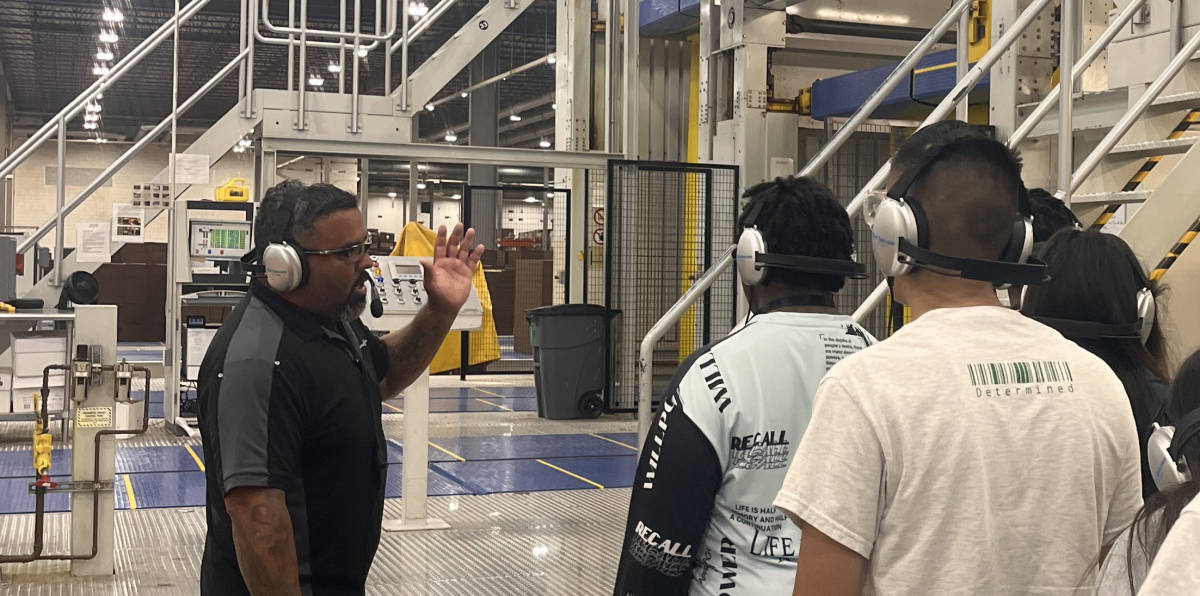GCAMP, the Greater Chicago Advanced Manufacturing Partnership, has been excited to read all of the news regarding the manufacturing industry in Illinois, and we are eager to share some of the highlights with you.
Manufacturing in Illinois is a ‘high-growth industry’ specifically in:[1]
- Machinery Manufacturing
- Fabricated Metal Machinery
- Chemical Manufacturing
- Robotics and Advanced Materials, including nanomaterials
- Airplane and Drone Manufacturing
Manufacturing supports many ‘high priority’ occupations including:[2]
- Tool and Die Makers
- Machinists
- Machine Tool Setters, Operators, and Tenders
- Computer Numeric Controller (CNC) Programmers
- Welders
- Industrial Machinery Mechanics
- Electrical Engineering Technicians
- Industrial Engineering Technicians
- Mechanical Engineering Technicians
- Mechanical Engineers
- Industrial Engineers
What does it mean to be a ‘high priority’ occupation?
As part of the Illinois State Plan for Strengthening Career and Technical Education for the 21st Century Act (you may know it as the Perkins Plan), educators and industry professionals in Illinois were tasked with refining Illinois’ career and technical education (CTE) system. Their goal was to promote success for students and their communities by fostering career pathways that both 1) align to current and projected industry and community needs and 2) support students’ interests and goals. This work began with identifying careers and career pathways in Illinois that qualified as “high priority.” High-priority occupations were defined as:
- Jobs that are currently in high demand in our state.
Manufacturing currently creates 193,232 jobs in Illinois. 1
- Job opportunities that are expected to grow in demand over the next 10 tears
Over the next 10 years, it is projected that 3.8 million new workers will be needed to fill manufacturing jobs in the United States. 1
- Jobs with median salaries falling in the High or Medium category for Living Wage Potential
The average annual wage for a manufacturer is $108,876. 1
What do these Illinois manufacturing trends mean for you?
For Illinois students, now is a great time to start exploring career opportunities in manufacturing. Manufacturing jobs are in demand, growing, and well paid! Start by taking some of these steps -
- Talk to your school counselors to see if your school offers Career and Technical Education (CTE) classes in precision machining, welding, engineering, robotics, or other manufacturing-related skills.
- Get involved in clubs, like machining, welding, or robotics clubs, that will help you build your manufacturing and engineering skills.
- Participate in competitions like SkillsUSA or TMA’s Precision Machining Competition to further sharpen your skills.
- Pursue technical certifications through NIMS or OSHA to learn basic industry standards.
- Get into manufacturing facilities to see how high-speed automation, robotics, and state-of-the art technology combine to create the products we use every day.
- Talk to professionals in the manufacturing industry. Ask questions about their jobs and their career paths.
Let GCAMP Help.
Students, educators and manufacturers can find the tools they need through GCAMP. Utilize the educational materials, entry-level Job Board, Calendar of Events, and other resources on our website, gcamp.org, to get started today. OR contact GCAMP at info@gcamp.org. We look forward to hearing from you!
[1] Illinois’ 2024 Economic Growth Plan by the Illinois Department of Commerce and Economic Opportunity
[2] From the State of Illinois Model Programs of Study Guides: Manufacturing and Engineering, developed in consultation and collaboration with the Illinois State Board of Education through a process led and facilitated by EdSystems using data from the Department of Labor, Illinois Department of Employment Security, and MIT’s Living Wage Calculator for the State of Illinois.


